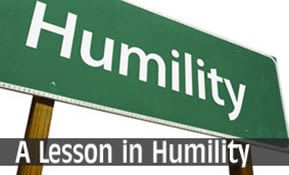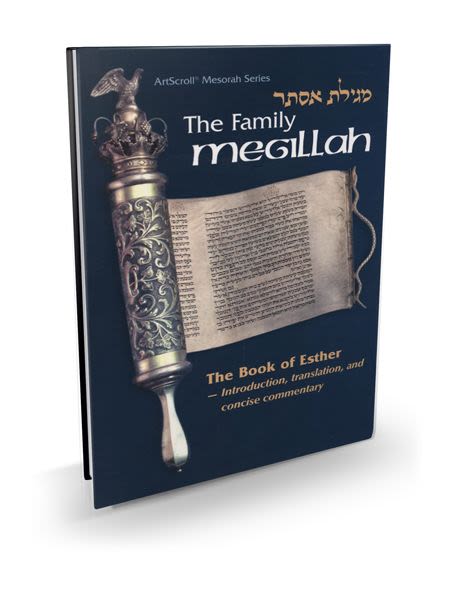
Zot HaBracha: Fond Farewell
A farewell message usually carries special strength and influence, for a number of reasons. The event itself carries...

Fortunate are You, O Israel
A moment of summation and a farewell ceremony are among the most impressive and moving events that could be, and they make an impression lasting a lifetime. Compound this with the fact that we are speaking of the conclusion of the holy Torah and it is even more impressive. Moses’ words at the end of the blessing he gave to the tribes of Israel: “Fortunate are you, O Israel: Who is like you! O people delivered by Hashem” – formulate the summation of his prophecy and his farewell from his flock. His words in this great ceremony reverberate until this day.
We also find a similar farewell in the words of the prophet Malachi, which end the prophetic period in the People of Israel. The last of the prophets concludes his message to Israel with the words: “Remember the Torah of Moses My servant…” – I, the spirit of prophecy, am leaving you, before I go I want to remind you of one thing: “Remember the Torah of Moses My servant.” Keep it scrupulously in all of its details and it will watch over you until the coming of the awaited day: “The day of Hashem, great and awesome.”
Here also in the summation of the Torah Moses delivers his last will and testament to the people: “Fortunate are you, O Israel.” Rashi adds: “After he detailed the blessing to them, he said: ‘Why do I need to specify to you? The generality is – everything is yours! This is an example of a specification broadened by a general statement, after the specific blessing to each tribe he broadened it with a general blessing that included everything. All the happiness and goodness is reserved for the People delivered by Hashem. Therefore: “Fortunate are you, O Israel,” the blessings specified are only for this world, upon them is added the general blessing that is the hidden light of the World to Come.
We find this explanation in the words of Rabbeinu Bachayei (a classic commentator on the Torah from the 1100’s): “This verse is an explicit promise to Israel regarding the World to Come. The above verses discussed the material blessings: peace, contentment and goodness, the ‘land of grain and wine,’ the heavens above will give rain for a blessing, and you will dwell in the land securely…Therefore it was needed to add and explain: ‘Fortunate are you, O Israel, Who is like you!’ Don’t think this will be the ultimate reward for the Mitzvot…you shall have goodness and contentment in the good, expansive land in this world, and you shall be delivered by G-d to the World to Come. True deliverance is only in the World to Come…”
The Obligation to Know
A farewell message usually carries special strength and influence, for a number of reasons. The event itself carries emotional charge that creates the condition for absorbing the message. Additionally, the populace will always remember the words in order to have a reminder of the departed one. Above all, at such a time the message is expected to be of the highest importance. The greater the personage who delivers the last will and testament, and especially a great leader on the day of his death, the greater will be his message, even if the words are few.
Thus, when we examine Moses’ message: “Fortunate are you, O Israel: Who is like you! O people delivered by Hashem,” with the explanation we learned above, we find a powerful encouragement for elevation in our service of G-d. Since our entire purpose in this world is: “Prepare yourself in the corridor so that you’ll be able to enter the palace,” the more we know the greatness of the reward in the ‘palace,’ the more we will be able to devote ourselves wholeheartedly to the service of G-d.
The Way to Know – Power of Visualization
Rabbi Yechezkel Levinstein zt’’l, the Mashgiach of Yeshivat Ponevitch, told the story of a Yeshiva student who complained that his belief in the World to Come was far from perfect, even though he attempted to attain it. As a result of this student’s complaint, the Mashgiach presented the following remarks in the Yeshiva, in which he pointed out the mistake the student was making and the proper way to strengthen our belief in the World to Come:
The author of the “Path of the Just” opens his work with the words: “The foundation of saintliness and the root of perfection in the service of G-d lies in a man’s coming to see clearly and to internalize as a truth the nature of his duty in his world…Our sages of blessed memory have taught us that man was created for the sole purpose of enjoying G-d and deriving pleasure from the splendor of His Presence; for this is the true enjoyment and the greatest pleasure that can be found. The place where this pleasure may truly be derived in the World to Come.”This passage teaches us that knowledge alone is not enough to be a foundation for our service of G-d. Even though the knowledge may have been achieved through great toil, it is necessary to add clarity and internalization. Examining all sides of the question and their aspects, and discovering the truths that come out through this process achieve this clarity. After the intellectual clarifications one must make the matter real, close to the senses, and internalize them in one’s heart. Without toil in seeking clarity and internalization one can’t expect success in the service of G-d. The student’s mistake, said Rabbi Yechezkel, was that he thought it would be enough to have knowledge alone, without internalizing. And yet, we must be aware that even internalization is not the end of the road; rather we must labor our entire life to reach a clear recognition of the existence of the World to Come.In the first chapter of the “Path of the Just,” which was quoted from above, the author brings many proofs of the existence of the World to Come from the words of the Torah and the Prophets, from the words of our Sages and from the axioms of logic. Yet this isn’t the end of the job; a person must visualize the essence of the World to Come and understand the great reward awaiting him for the performance of Mitzvot. This is a new and separate service that can be accomplished by using the faculties of visualization and illustration.In Chapter IV of the Path of the Just, Rabbi Moshe Chaim Luzzatto brings the claims of the fools who only want to lighten their burden. They say: “Why should we wear ourselves out with so much work to have a large portion in the World to Come, it will be enough for us to have a small portion.” The mistake of these fools is they never visualized what the World to Come is, because someone who would see with his own eyes the splendor, radiance and glory of that world would never be satisfied with a small portion and would seek the largest possible portion he could achieve. It behooves a person to develop his faculty of visualization, so he may visualize something of what the World to Come is all about, and in this way strengthen his knowledge of its existence.
The Generosity of the Creator
In order to increase our comprehension of a spiritual reward, despite the fact that our materialistic senses can’t help us, we should note that the giving of the Creator is unlimited. In the Grace after Meals we say: “but only of Your Hand that is full, open, holy and generous,” which teaches us that G-d gives abundantly and generously. This is speaking of the limited physical world; certainly His Hand is open and generous in the Eternal World.
By looking at G-d’s generosity in this world we can progress to visualize the happiness of the World to Come. The Sages teach us there are 25,000 types of plant life. We don’t know the purpose of all these different types, but we see that when G-d decided to benefit the world with plant life He gave without measure. Why? Because His hand is full, open, holy and generous! (One may find in the Tractate Chullin, page 63b, where the Talmud discusses the many types of fowl, fish, and insects, and all the animals that came into Noah’s ark).
We also need to look into the instances of when someone received the blessing of the Creator, which is unlimited. G-d blessed the Patriarch Yitzchak, “And the man became very great…” Rashi brings from the Midrash a description of Yitzchak’s wealth: “People would say: ‘Better the dung of Yitzchak’s animals than all the gold and silver of [the King] Avimelech.’” This shows the immensity of Yitzchak’s wealth, for if the dung of his herds was worth more than the King’s treasury, how much more was the value of his herds!
By the Patriarch Yaakov we find even more. The Midrash says: “Yaakov had 1,260,000 flocks, and 600,000 dogs guarded his flocks.” In another place the Midrash describes that while Yaakov and Esav were in their mother’s womb, they made an agreement that Esav would take his portion in This World and Yaakov would take his in the World to Come. The Sages relate: “When Yaakov returned from the house of Laban, Esav saw that he had children, servants and flocks. He said, “My brother, the portion in This World is for me! Yaakov answered him. Esav thought, ‘Look how much G-d gave him in This World, which isn’t even his portion, how much more will He give him in the World to Come.’ Esav then decided to nullify the agreement: ‘Let us make a partnership’ he offered. (Tanna d’Bei Eliyahu Zuta 19)”
We see two things here. Besides seeing the great abundance of G-d’s blessing, we see that even a man like Esav, (who was the quintessential wicked man), upon seeing this great abundance came to recognize how great would be the reward in the World to Come.
He Rewards the Ones Who Fear Him
We’re now ready to advance to the next step, and examine the way G-d rewards in the World to Come for good deeds. Here too we’ll look at examples of reward in this world and make the conclusion with a kal v’chomer (by means of an inference from minor to major) about the expected reward in the World to Come.
The Talmud in the tractate Sanhedrin (96a) tells the story of how Nebuchadnezzar, King of ancient Babylon, merited to rule over the entire world:
The King Merodach Baladan of Babylon wanted to send a message to Chezkiyahu, King of Yehuda, who had recovered from a life-threatening illness. Nebuchadnezzar was the King’s scribe, but he was missing at the time and someone else wrote the message. As the messenger left with the document, Nebuchadnezzar entered and asked how they wrote the letter. “Peace to the King Chezkiyahu, Peace to Jerusalem, Peace to the Great G-d,” was their reply. He interrupted, “If you call Him the Great G-d, why did you mention Him last?” They said, “It’s your idea, go and stop the delivery and change it.” He rose and walked four steps in order to retrieve the letter. As a reward for this good deed he became the King of Babylon and conquered the civilized world, and was the wealthiest man in the world. Even though he was a wicked and repugnant man he received this immense reward for one little good deed.
When Jeremiah the Prophet saw how the wicked Nebuchadnezzar succeeded in conquering Jerusalem, he was troubled and asked (Jeremiah 12), “Why does the way of the wicked prosper?” G-d’s answer was: “If you ran with the footmen, and they have wearied you, then how can you contend with the horses?” The Talmud explains: “This is analogous to a man who boasted he could run three miles in front of the horses in marshland. He happened upon a footman, and ran with him 3 quarter-miles and fainted. They said to him: ‘If with a footman it was so, with horses so much the more so. And if three quarter-miles it was so, three miles so much the more so. And if on dry land it was so, on marshland so much the more so.’ And you, Jeremiah, if I rewarded the four steps of that wicked man, you are so astonished, when I reward the good deeds of Avraham, Yitzchak, and Yaakov who ran before Me like horses, so much the more so!” This Midrash provides an illustration that G-d made for a prophet regarding the reward awaiting the Patriarchs for their good deeds.
We can interpolate from this story. If Nebuchadnezzar received such an awesome reward in this world for such an insignificant deed, how much reward awaits each and every Jew? Certainly an unlimited reward for every word of holiness uttered in the Synagogue or home, such as “Amen” or “Yehei Shmei Raba.” The reward only increases in proportion to the effort put into the deed of the Mitzvah.
When we visualize these points and internalize their message, we will be filled with happiness, in the knowledge of the great fortune that waits us in the World to Come. If we don’t yet feel this joy, it’s only because we are not really aware of what has been promised to us. If we work to internalize the knowledge and gain these holy feelings, it will inspire us to run with alacrity to do mitzvot in joy. Nothing could stop us, and we would accept upon ourselves the Heavenly yoke. This is what our Sages taught: “Calculate the reward of a mitzva against its loss.” Regarding this Moses said: “Fortunate are you, O Israel: Who is like you! O people delivered by Hashem.” Fortunate are you, because – everything is yours!











Tell us what you think!
Thank you for your comment!
It will be published after approval by the Editor.